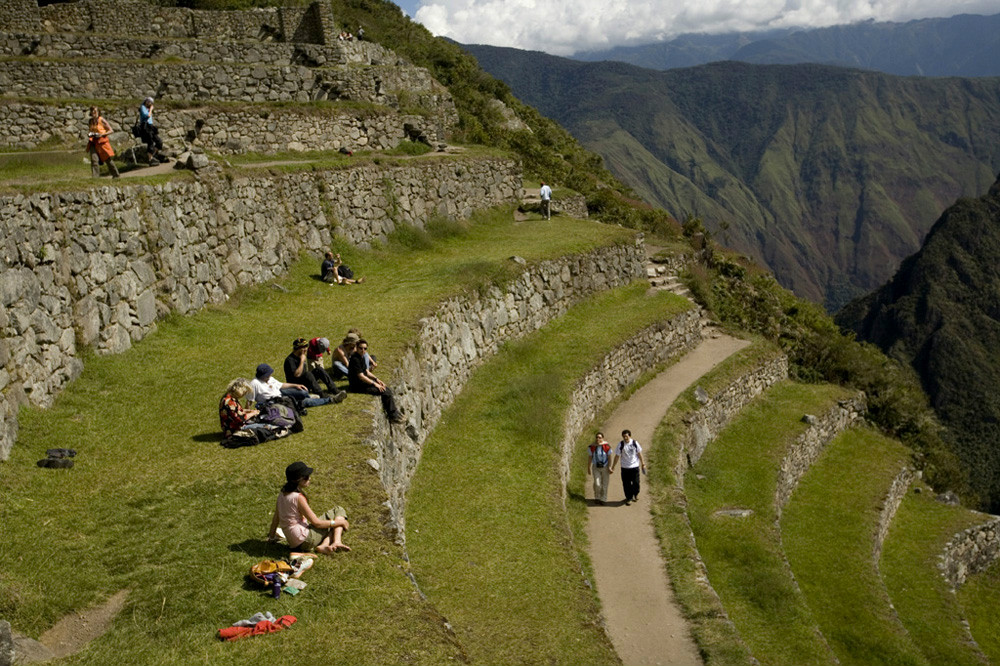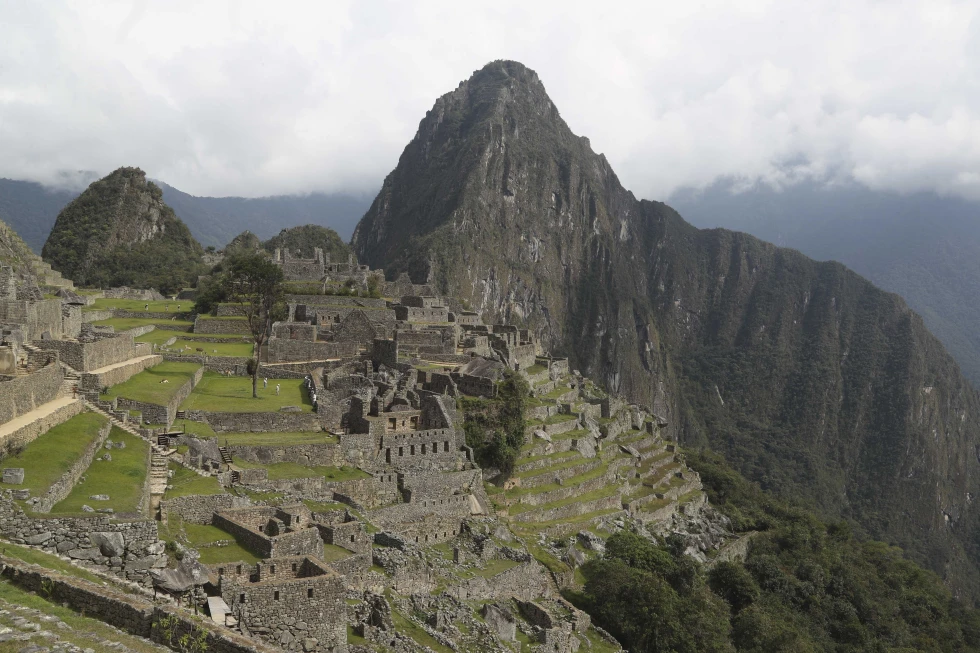The recent controversy surrounding the outsourcing of ticket sales to Machu Picchu in Peru has sparked a heated debate and ultimately led to the government’s decision to backtrack on their initial plans.
This turn of events has not only caused disruptions in the tourism sector but has also raised concerns about the management and preservation of one of the world’s most iconic historical sites.
The decision to outsource the sale of entry tickets to a private company was met with strong opposition from local residents, tour operators, and other stakeholders in the tourism industry.
This move was seen as a threat to the livelihoods of those who rely on the steady flow of tourists to the area, as well as a potential risk to the preservation of the site itself.
The protests and subsequent suspension of rail services to Machu Picchu served as a clear indication of the widespread discontent and the urgency of the situation.
The impact of these disruptions was felt not only by the local economy but also by the countless travelers who had planned and looked forward to visiting this world-renowned destination.
The government’s decision to terminate the contract with the private company and revert to the previous ticketing system is a step in the right direction.
It demonstrates a willingness to listen to the concerns of the local community and prioritize the long-term sustainability of Machu Picchu as a cultural and historical treasure.
However, the repercussions of this controversy are likely to be far-reaching. The deserted streets, hotels, and restaurants around the site are a stark reminder of the economic toll that such disputes can take.
It will take time and concerted efforts to rebuild trust and confidence in the tourism sector, both domestically and internationally.
Furthermore, the allegations of irregularities and financial losses surrounding the ticketing system raise important questions about transparency and accountability in the management of cultural heritage sites.
It is crucial that measures are put in place to ensure that such issues are addressed and prevented in the future.
The Minister of Culture’s decision to heed the protesters’ request and engage in dialogue with local authorities is a positive development.
It reflects a recognition of the need for collaboration and consultation in decision-making processes that impact the cultural and economic landscape of a region.
Moving forward, it is imperative that all stakeholders, including the government, local communities, and the tourism industry, work together to find sustainable and equitable solutions for the management of Machu Picchu.
This should involve a comprehensive assessment of the site’s infrastructure, visitor management, and environmental impact, as well as a commitment to upholding the principles of responsible tourism and cultural preservation.
In conclusion, the recent events surrounding the ticketing system at Machu Picchu have brought to light the complexities and challenges of managing a world heritage site in the modern era.
While the government’s decision to reverse its plans is a positive development, it is only the first step in a larger conversation about the future of this iconic destination.
It is essential that lessons are learned from this experience and that efforts are made to ensure the sustainable and inclusive management of Machu Picchu for generations to come.
In recent events, the Peruvian government has made a significant decision to transition ticket sales for the renowned Machu Picchu site to an online platform managed by the national government.
This move has resulted in the rescinding of the contract with Joinnus, a virtual ticket sales firm owned by one of the wealthiest economic groups in Peru, which had taken over the service in mid-January.
The implications of this decision have rippled through the region, affecting not only the ticket sales process but also the local tourism industry and the experience of visitors to the historic site.
The decision to transfer ticket sales to a government-managed online platform represents a pivotal shift in the management of tourism in the Machu Picchu district.
It reflects the authorities’ commitment to exert greater control over the distribution and sale of tickets, aligning with broader efforts to streamline and regulate access to the UNESCO World Heritage site.
However, the sudden and unexpected nature of this change has led to immediate consequences, particularly for the local economy and the experience of tourists.
Following the suspension of rail service to the area, which was promptly resumed, the influx of visitor arrivals has been significantly slowed.
This has had a tangible impact on the local businesses and accommodations, with reports of a stark decrease in tourist footfall.
Roger Monzón, an employee at the Inkas Land hotel in the Machu Picchu district, noted the striking absence of people, likening the current situation to the early stages of the COVID-19 pandemic.
The once vibrant and bustling area has been reduced to a mere trickle of visitors, with the hotel accommodating only two tourists from Portugal at a time when it would typically host a much larger number of guests.
The challenges faced by tourists who have persisted in visiting the Inca site during the recent disruptions are emblematic of the broader impact of the government’s decision.
Those who have undertaken the journey have had to navigate a longer and more arduous road, significantly altering the traditional experience of visiting Machu Picchu.
The extended journey involves a 210-kilometer (130-mile) drive from Cusco to a hydroelectric plant, followed by a two-hour walk to reach the Machu Picchu district, where they then rest before embarking on a further 2 1/2-hour walk to the stone citadel.
This increased difficulty in accessing the site has undoubtedly deterred many potential visitors, altering the dynamics of tourism in the region and challenging the traditional means of experiencing this iconic destination.
The repercussions of the decision to transition ticket sales and the subsequent disruptions to tourism in the Machu Picchu district underscore the interconnectedness of policy changes, economic activity, and the visitor experience.
While the government’s actions reflect a desire to assert greater control and oversight, the immediate consequences have highlighted the delicate balance between regulation and the vitality of the local economy.
The impact on businesses, accommodations, and the overall appeal of the region as a tourist destination cannot be underestimated.
Looking ahead, it is imperative for the authorities to consider the broader implications of such decisions and to work collaboratively with stakeholders to mitigate the immediate challenges and support the long-term sustainability of tourism in the Machu Picchu district.
This includes engaging with local businesses, tour operators, and community representatives to ensure that the transition to the new ticket sales platform is managed effectively and that the visitor experience is preserved and enhanced.
Furthermore, efforts to communicate these changes to potential visitors and to address any concerns regarding accessibility and convenience will be crucial in maintaining the appeal of Machu Picchu as a world-class destination.
In conclusion, the decision to move ticket sales to an online platform managed by the national government and the subsequent disruptions to tourism in the Machu Picchu district have had far-reaching implications.
While reflecting a commitment to regulatory oversight, the immediate consequences have highlighted the delicate balance between policy changes and the economic and experiential dimensions of tourism.
Moving forward, collaborative and strategic efforts will be essential to navigate these challenges and to ensure the continued vibrancy and appeal of Machu Picchu as a global cultural treasure.
As the situation continues to evolve, it is imperative for all stakeholders to engage in constructive dialogue and concerted action to address the immediate impacts and to chart a sustainable path forward for the region’s tourism industry.
By doing so, the authorities, businesses, and communities can work together to preserve the unique heritage of Machu Picchu while fostering a thriving and resilient tourism sector for the benefit of all.
In light of recent events, the advisory issued by the United States, Germany, France, and Brazil urging caution for individuals planning to visit Machu Picchu, a UNESCO World Heritage Site since 1983, underscores the potential challenges stemming from transport disruptions, particularly the scarcity of water and other essentials.

The impact of such advisories and the subsequent protests on the region is significant, given that tourism serves as the primary economic driver in Cusco, providing direct employment to over 200,000 individuals.
Prior to the unrest, Machu Picchu typically welcomed up to 4,500 visitors daily, reflecting the site’s immense popularity and economic importance.
While precise figures regarding the initial week’s losses remain unavailable, certain tourism associations estimate the damages to be around $4.7 million, encompassing various sectors directly associated with tourism, including tourist agencies, hotels, restaurants, tour guides, local markets, taxi services, and rural communities.
Elena González, the president of the Association of Cusco Tourism Agencies, emphasized the widespread impact of these losses, highlighting the interconnected nature of the region’s tourism ecosystem and its broader economic repercussions.
